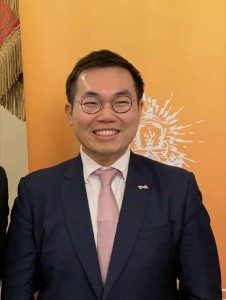Events
Thermal-chemical-fluid dynamics of multi-metal additive manufacturing: In-situ alloying, composition control and species mixing

Chinnapat Panwisawas
| Date: | Monday 8 August 2022 13:00 - 14:00 |
| Location: | Teams |
ABSTRACT
Understanding the underlying mechanisms of metal additive manufacturing (AM) through computational materials science necessitates to materials design and process optimisation. The stochastic nature of emerging AM microstructure induced by thermal-chemical-fluid dynamics is the key to maximise the AM performance. It is likely induced by metal powder size/shape distribution, energy input by process parameters, processing-induced defects (e.g. porosity, crack), and second phase precipitation, which all result in microstructural variations and site-specific behaviour. Multi-metal AM is an emerging research underpinning numerous technologies including AM repair of dissimilar metals and in-situ alloying. Understand the fluid dynamics of multi-metals powders and laser using powder-bed AM as a function of AM process parameters through a high-fidelity multi-physics modelling rationalises the multi-metal thermal-chemical-fluid flow and allows the link between composition and metal fluid flow science to be constructed. The results provide insights into elemental powder AM and in-situ alloying of NiAl, NiTi and TiAl binary metals. The melt flow dynamics is characterised by non-dimensionless Reynolds (Re) and Péclet (Pe) numbers. The mass loss rate has been found to be governed by the Re with a simple proportional correlation linked with AM process behaviour. In in-situ binary alloying, convective species mixing further complicates the mass loss and flow dynamics. The novel materials-process design developed will lead to AM design of optimum final product composition and mitigation of defect formation. The framework provides a materials physics-based approach to simulate the multi-metal AM process. Synergy between modelling and in-situ experiments needs to be steered for accomplishing the novel digital disruptive materials and process design for metal AM.
| Contact: | Chinnapat Panwisawas |
| Email: | c.panwisawas@qmul.ac.uk |
| People: | Chinnapat PANWISAWAS |

